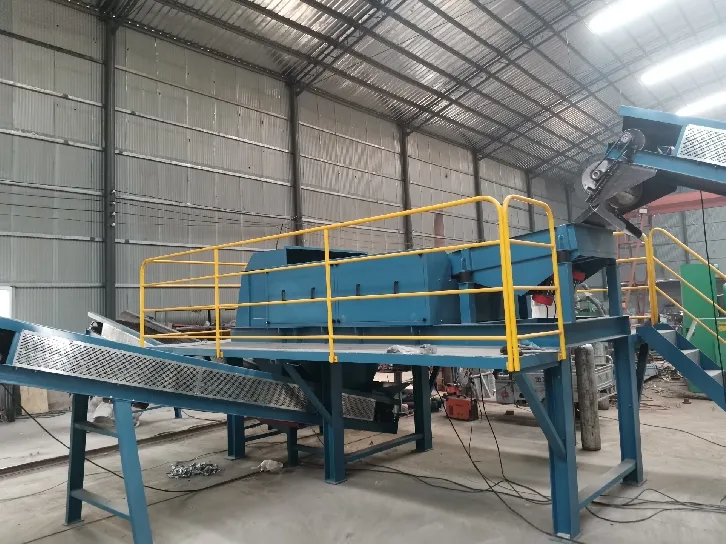

Oct . 19, 2024 05:21 Back to list
The Importance of Plastic and Metal Shredders in Recycling
In recent years, the urgency of addressing environmental challenges has driven an increased focus on recycling and waste management. Among the key technologies that facilitate effective recycling processes are plastic and metal shredders. These machines play a vital role in the recycling industry by breaking down waste materials into manageable sizes, making them easier to process and repurpose.
Plastic and metal shredders operate by using sharp blades to slice through various types of waste materials. The resulting small pieces can be further processed and melted down to create new products, significantly reducing the need for virgin resources. This not only helps conserve the environment but also contributes to the circular economy where materials are reused instead of discarded.
One of the primary advantages of shredding is that it enhances the efficiency of recycling operations. By reducing the size of materials, shredders enable easier transportation and sorting. For instance, compacted plastic and metal fragments take up less space in transportation, lowering costs and emissions associated with logistics. Moreover, smaller pieces can be more effectively sorted using advanced separation technologies, ensuring that materials are correctly categorized for recycling.

The types of materials processed by these shredders vary widely. Plastic shredders can handle various forms of plastic waste, including PET bottles, packaging materials, and discarded plastic products. Similarly, metal shredders are capable of processing scrap metal, including aluminum cans, steel items, and industrial metal waste. The flexibility of these machines makes them invaluable in diverse industries, from municipal waste management to automotive recycling.
In addition to environmental benefits, shredders also contribute to economic growth. The recycling industry has become a significant sector, generating employment and producing valuable materials for new products. Shredding operations often require skilled labor for machine maintenance and operation, leading to job creation in local economies.
However, the reliance on shredders must be optimized with the approach of sustainable practices. It is crucial to ensure that the shredding process itself is efficient and minimizes energy consumption. Advances in technology continue to improve the designs and capabilities of shredders, making them more efficient and environmentally friendly.
In conclusion, plastic and metal shredders are essential tools in the recycling industry, enabling efficient waste management and resource recovery. By facilitating the recycling process, they play a significant role in promoting sustainability and protecting our planet. Embracing advancements in shredding technology can further enhance their contribution to a greener future.
Latest news
Troubleshooting Common Eddy Separator Problems
NewsJul.04,2025
The Role of Metal Recycling Plants in Circular Economy
NewsJul.04,2025
The Impact of Recycling Line Pickers on Waste Management Costs
NewsJul.04,2025
Safety Features Every Metal Shredder Should Have
NewsJul.04,2025
How Industrial Shredders Improve Waste Management Systems
NewsJul.04,2025
How Cable Granulators Contribute to Sustainable Recycling
NewsJul.04,2025